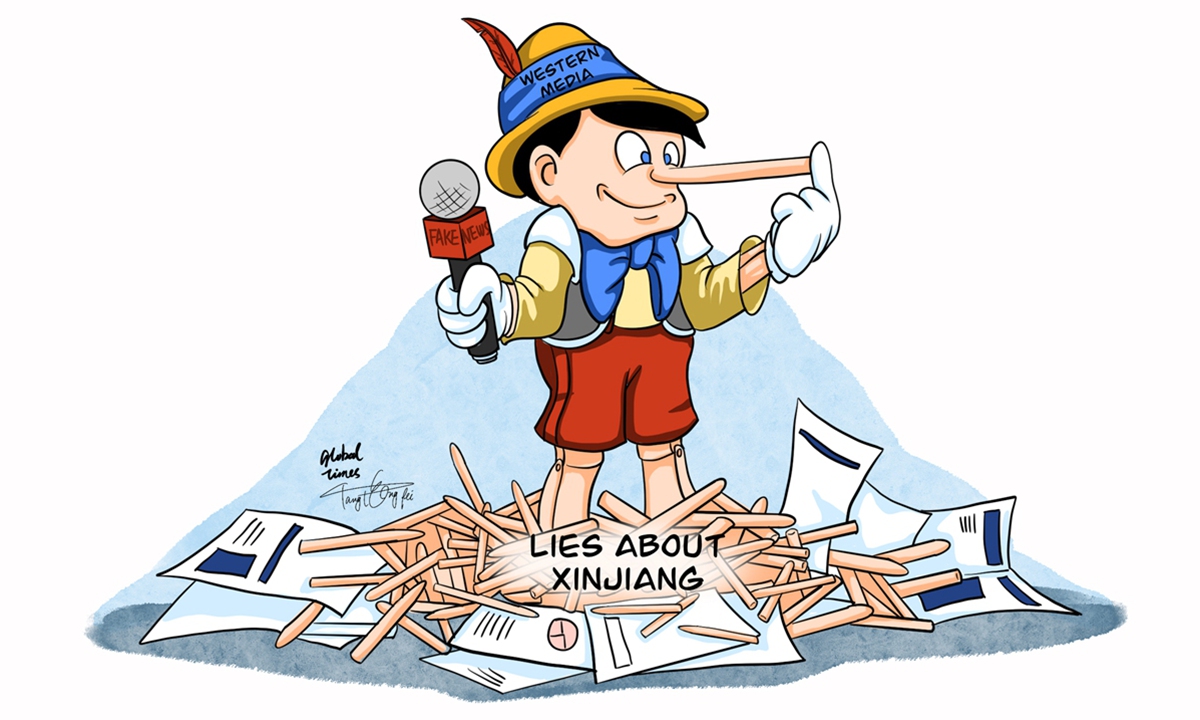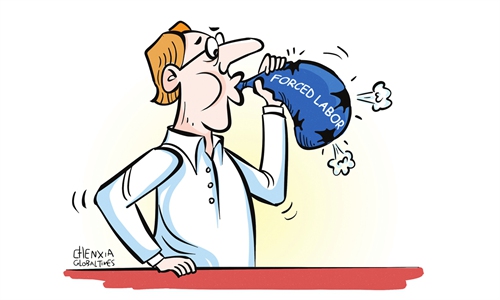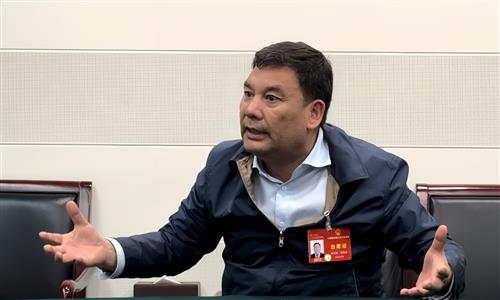
Illustration: Tang Tengfeit/GT
The presence of a Volkswagen manufacturing site in China's Xinjiang Uygur Autonomous Region has long been a target for China hawks who aim to undermine Germany's trade and investment ties with Beijing. The region has faced frequent attacks from US-sponsored "scholarship" and studies, particularly from anti-Communist fundamentalist, Adrian Zenz, who works for the US government-funded Inter-Parliamentary Alliance on China, as well as the State Department-funded Australian Strategic Policy Institute.
Both sources, among others, have pushed an aggressive narrative claiming that China engages in so-called "forced labor" in Xinjiang. The goal of such accusations is to manufacture consent for US foreign policy to shift supply chains out of China by blacklisting goods on the dubious pretense of forced labor, as well as furthering American protectionist ends. This has led to a blanket ban in the US on goods manufactured in Xinjiang and the targeting of key strategic items such as solar panels.
Key to these US-sponsored "scholarship" and studies is never "proof" but often insinuation. They rest on a guilty until proven innocent basis which insinuates that even if a small part of a supply chain "may" consist of what they liberally interpret as forced labor, then the entire product is compromised by default. By applying such a broad definition, the idea is to generate risk, doubt and uncertainty for businesses in an attempt to force them to withdraw. Now, the German automobile manufacturer Volkswagen is firmly in its sights, as it has maintained a plant in the Xinjiang region. It has therefore become a target of this organized anti-China lobby who wish for it to withdraw in order to disrupt Germany's ties with the Chinese market.
The question is: Is there actually any forced labor involved in Volkswagen and its supply chain? The answer is no, and there have been studies verifying this. Not only did a Volkswagen-commissioned audit in December find no signs of "forced labor" at the company's site in Xinjiang, but more importantly, Bjorn Alpermann, a sinologist at the University of Würzburg in Germany, affirmed a study that the so-called "forced labor" accusations were "not conclusively proven." Of course, Alpermann's findings quickly fell on deaf ears in favor of the preferential narrative, that there is forced labor in the pursuit of undermining business there.
As Alpermann quoted in a LinkedIn article: "The Biden administration is going after industries" and seeks to "hobble" China through its targeted use of sanctions. It is worth mentioning that the current German government has also been pushing to facilitate business shifts away from China against the will of German industry lobby groups. And it almost certainly played a role in this too. The main point, however, is that you can see how this "controversy" is coordinated across the media in a theatrical-like fashion in order to generate a narrative that forces through the inevitable conclusion. Volkswagen was suddenly targeted from multiple directions. There was a clear, overarching political effort behind it all, lacking any actual evidence or proof of forced labor.
What has happened is that there was a concerted campaign to politically undermine Volkswagen's investments in Xinjiang by smearing them with "forced labor" allegations and delivering them a "game's up" verdict. This has occurred despite a thorough auditing being carried out which showed no such "forced labor" was being used.
But if there is one thing that must be noted, the "Xinjiang card" has never really been about human rights but an opportunistic, exaggerated and political campaign that comes and goes as a weapon to attack China on the issue of supply chains, justify decoupling and even product bans which are in fact motivated by protectionism. In doing so, it distorts facts and resorts to pseudo-scholarship.
The author is a political and historical relations analyst. opinion@globaltimes.com.cn



